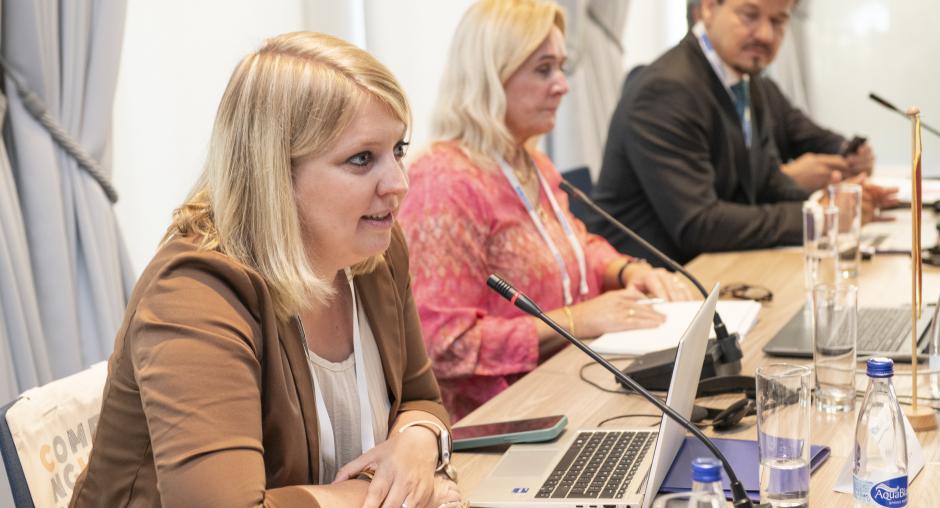Regional anti-trafficking conference concludes with strong commitment to combat human trafficking in supply chains across South-Eastern Europe

A regional conference addressing human trafficking in global supply chains, hosted by the OSCE Office of the Special Representative and Co-ordinator for Combating Trafficking in Human Beings and the OSCE Mission to Montenegro, in collaboration with the Ministry of Interior of Montenegro, concluded today in Budva, Montenegro. The event brought together around 40 participants from nine countries, including representatives from government agencies, embassies, businesses, chambers of commerce, trade unions, and civil society organizations. Representatives from the EU also attended. Key outcomes included updating stakeholders on the latest developments in integrating human rights due diligence into legal and regulatory frameworks in the EU and globally and their implications for the private sector, including beyond EU borders. Best practices from countries outside South-Eastern Europe, including Germany and Norway, were also shared.
“The EU's new laws on due diligence and forced labour present a unique opportunity for non-EU countries to lead and gain trade advantages by adopting ethical practices, particularly in combating human trafficking for labour exploitation. It's not just compliance—it's good business,” said the OSCE Special Representative and Co-ordinator for Combating Human Trafficking, Dr. Kari Johnstone.
Julia Schellhaas, Senior Adviser on Supply Chains at the OSCE, emphasized: "Adopting robust due diligence laws and policies in supply chains and public procurement, coupled with ongoing stakeholder collaboration, is key to driving meaningful and lasting change."
Giovanni Gabassi, Acting Head of the OSCE Mission to Montenegro, stated that “interpersonal co-operation, networking, and the exchange of expertise and best practices are essential for systematically strengthening legal and institutional mechanisms and ensuring their successful implementation in the fight against human trafficking.”
Jovana Mijović, State Secretary in the Ministry of Interior of Montenegro, said that they are aware that it is very important to constantly improve their professional capacities, so that victims of human trafficking can be identified as such. “We can be successful in the prosecution of this complex crime only if we are familiar with all emerging forms of recruitment and exploitation for the purpose of human trafficking,” said Mijović.
Participants also emphasized the need to foster co-operation between the public and private sectors, stressing the crucial role of chambers of commerce in achieving this.
The event, built upon previous OSCE supply chains conferences in the region, advanced collective efforts and partnerships to prevent human trafficking in supply chains in the Western Balkans and beyond.
